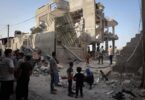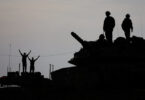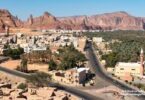Khaleeq Nazar Kiani
Since 1948, it is the 5th and most prolonged insurgency/ armed conflict continuing for the last 16 years in Balochistan, which has adversely affected the society to a great extent. The poor people of the province are paying the high political, economic, and social costs of the ongoing armed conflict. Social and political polarization has grown up where tolerance and mutual respect were norms.
Politically, a new class was created from the 2nd and 3rd tiers of politicians, which, despite full support from the establishment, has failed to fill the vacuum to run the province’s affairs due to personal greed and mismanagement. They did very little to ease the people suffering despite significant funding from the center after the 10th NFC award, in which more than 1000 billion additional funds have been transferred. Still, two-thirds population is without electricity and safe, clean drinking water. Education is also the lowest on their priority list. Last financial year, more than 7 billion were not utilized in the education sector, which is a kind of social offense against the public. Failure of these propped-up politicians to win the people’s hearts, security expenditures increased to keep the peace in the province by compromising the basic fundamental rights/needs of the public.
The social cost of the conflict is immense, and thousands have lost their lives from both sides to the agony of the affected families. Baloch nationalists claim that more than a thousand people are missing is one of the causes of discontent in the province. The Government constituted a commission to resolve the issue of missing persons, which is still working with no tangible results, and to the utter dissatisfaction of the affected families.
When did insurgency start?
Before Musharaf’s take over in 1999, all separatists of the past were in Pakistani politics. People were judging them, and to some extent, a feeling of discomfort was brewing against them. Ousting from the Government again relapsed their insurgent thinking.
The flashpoint was District Dera Bugti, where gas companies wanted to do new exploration. Nawab Akbar Khan Bugti insisted on implementing already agreed agreements and a new deal for further exploration. The primary demand in the previous agreements was the employment of the local people in all unskilled jobs and the establishment of schools, hospitals in District Dera Bugti. For new exploration, he demanded a certain percentage of royalty for the development of District Dera Bugti. The matter was struck up, and the Government decided to opt for power to solve the problem. Nawab left his fort in December 2005 and went to the mountains with his loyal tribesmen. Armed clashes started between the security forces and Bugti tribesmen. Ultimately, Nawab was killed in 2006 in the mountainous area of Taratani District Kohlu.
The irony is that Musharaf tried to solve the matter through a General’s mindset rather than a statesman. The political people solve the problems politically, and PPP Government realized that the demand of royalty for the producing district is genuine and incorporated it in Petroleum and exploration policy 2012 by inserting clause 4.1 (5):-
“10% royalty will be utilized in the district where oil and gas are produced for infrastructure development”. However, it is part of policy but never implemented by the Provincial Government. Unfortunately, there was misinformation amongst the well-educated people of other provinces that Nawab was getting the royalty, and he was against the development, which is absolutely incorrect.
He was a true tribal man with a firm belief and guardian of tribal customs and traditions, whether good or bad. He served the province as Governor and Chief Minister with dignity and unmatched administrative skills.
Who are the angry Baloch and insurgents?
Khan of Kalat is the only angry Baloch who is not directly involved in the armed conflict, but the rest all Baloch leaders in exile who matter leading separatist organizations. Presently three major separatist organizations (BLA, BRA, and BLF) are operating in the province and are in a broader alliance. There is a need to engage all for the success of reconciliation efforts, which the Prime Minister announced in its recent visit to Gwadar.
It is a good omen that Government realized that there is an issue in Balochistan that needs immediate attention. Dr. Abdul Malik, the ex-Chief Minister, aptly said that this issue could not be solved without the support and blessing of army leadership. The question of who is responsible for the current insurgency now needs no elaboration. Certainly, the reconciliation talk has created discomfort amongst those who reached the helm of the affairs with the establishment’s blessing. The success of the reconciliation will push them back to square one.






